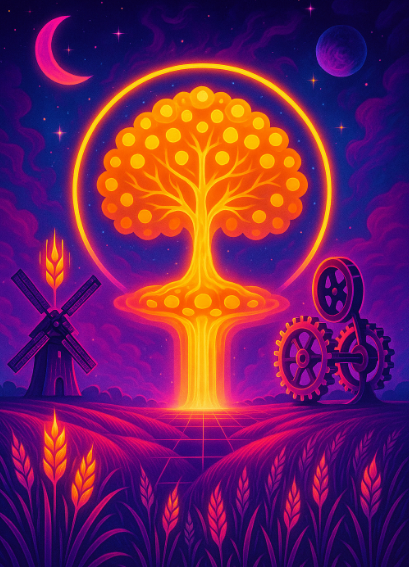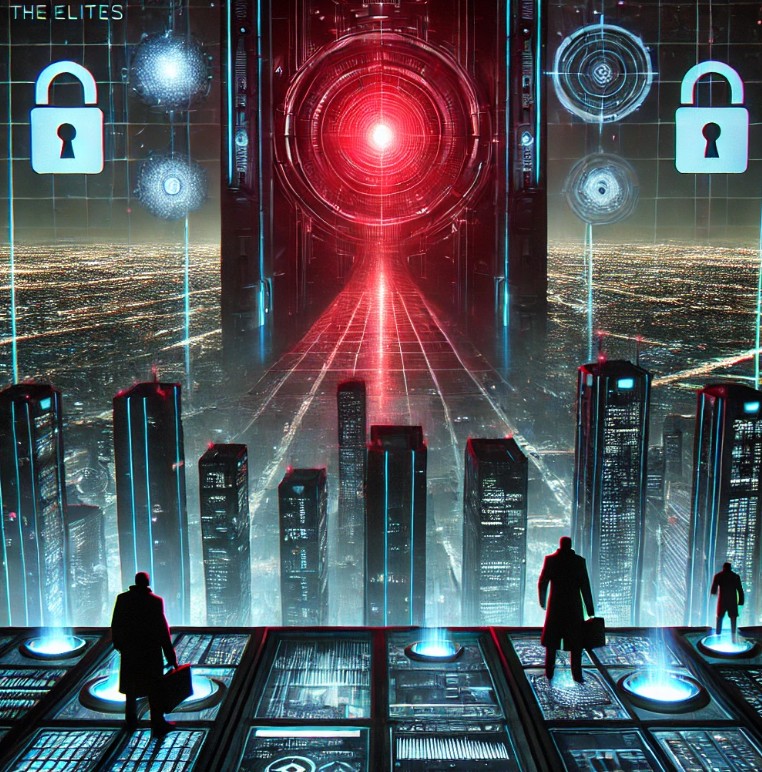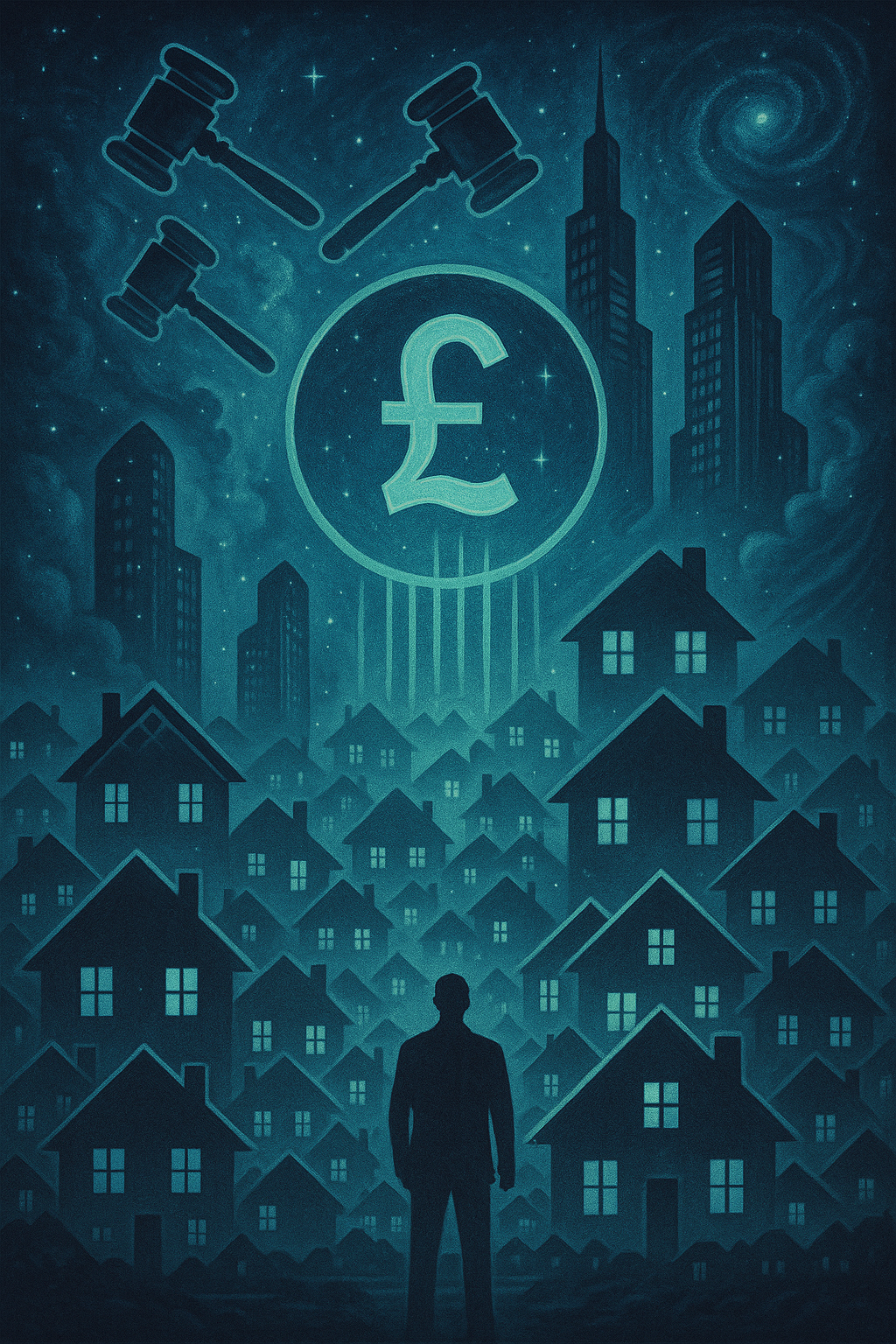Ethereal Downloads: The Limits of Time and Cognition in Grasping Truth
Popular articles
The notion of an ethereal repository—a boundless archive of all that has been, is, or might be—stands as a provocative hypothesis. Termed the Akashic Records in esoteric traditions, it posits a non-physical ledger, encoding every event, thought, and intent across existence. Imagine it as a cosmic download: infinite data, accessible in theory, yet filtered through the frail sieve of human faculties. Time straps us to a linear track; memory falters; comprehension stumbles. This essay assesses the plausibility of such “downloads” as a factual construct, probes the constraints of temporality and cognition, and questions whether truth, however vast, can ever fully pierce our limits.
The concept’s roots are old, its frame enduring. Ancient Sanskrit texts invoke “akasha”—ether, a fifth element—as the substrate of reality, a medium bearing all traces. Theosophists of the 19th century, like Blavatsky, cast it as a universal record, a mental plane beyond matter. Strip the metaphysical sheen, and it aligns with a secular idea: an exhaustive dataset, a ledger of causality from cosmos to consciousness. Physics entertains parallels—quantum fields hum with information, entropy tracks the past—but no experiment touches the ethereal. Still, the premise holds: if every act leaves an imprint, from Rome’s fall to a sparrow’s flight, then truth exists in totality, waiting. The catch is access.
Time imposes the first barrier. We’re bound to its arrow—forward, relentless, one tick at a time. Thermodynamics insists on this: entropy rises, the past recedes, the future looms unformed. History’s chronicles—say, Thucydides on Athens—capture slivers, but the bulk slips through, unrecorded or misread. A merchant’s ledger from 1600 might tally grain, not the sweat that hauled it; a king’s decree might echo, not the dissent it crushed. If an ethereal download offered all—the grain’s heft, the dissent’s whisper—we’d still parse it sequentially, frame by frame. Time’s linearity slices the infinite into digestible nows, but the whole stays out of reach.
Memory compounds the fracture. Human recall is a frail reed—psychology maps its decay: Ebbinghaus’s forgetting curve shows half of new knowledge fades within hours. A soldier’s tale of Agincourt might linger in scars and boasts, yet details blur—arrow counts, mud’s depth, a mate’s last shout. Even collective memory—archives, oral lore—rots: parchment crumbles, stories twist. Neuroscience pegs our limit: the hippocampus juggles a mere seven items at once, a pittance against an ethereal flood. If every thought since Sumer were downloadable, we’d drown; the mind’s buffer overflows, leaving truth half-grasped, half-lost.
Comprehension, too, falters. Reason demands structure—Aristotle’s logic, Newton’s laws—but infinity defies it. Consider Leibniz’s monads: each a mirror of the universe, yet human minds lack the scope to reflect them. A peasant’s utopia, etched in some ethereal byte, might clash with a lord’s—fields of ease versus halls of power—yet we’d strain to hold both, let alone millions. Cognitive science clocks us: IQ scatters, attention wanes, abstraction caps at what we’ve known. The 17th-century Royal Society cataloged stars, but the galaxy’s edge eluded them—tools and minds too blunt. Truth may lie in the download, but our lens is smudged, our frame too narrow.
History’s attempts at totality underscore the gap. Herodotus sought the world’s story—war, trade, gods—but missed Persia’s silent half. The Domesday Book tallied England’s wealth in 1086, yet omitted the serf’s hunger. Each stab at completeness—a census, a chronicle—hits a wall: time obscures, memory fades, understanding lags. If an ethereal archive held it all—every serf’s pang, every star’s arc—access wouldn’t suffice; we’d still filter through our frail triad. The Spanish Inquisition burned truths it couldn’t parse; modern states hoard data they can’t fully wield. The limit isn’t the source—it’s us.
Does this cripple truth itself? No—only our grip on it. Philosophy wrestles here: Kant’s phenomena veil the noumena, the thing-in-itself beyond our reach. If the ethereal logs every cause—every plague, every pact—truth exists, absolute and unyielding. But our share is partial, a shadow play on Plato’s cave wall. Bacon’s scientific method claws at it, step by test, yet each leap—Copernicus, Einstein—reveals more dark. The Akashic frame suggests a full script; we read scraps, guessing the plot. Time’s strap, memory’s sieve, comprehension’s edge—they don’t erase truth, they dwarf us before it.
The stakes for society are subtle yet sharp. A functional order—laws, norms—leans on shared truths, yet if each citizen’s download diverges, consensus frays. The Reformation’s tracts split Europe not by falsity but by clashing reads of the same divine. Today’s states predict—taxes, harvests—yet miss the undercurrent: a merchant’s evasion, a drought’s whisper. An ethereal totality could align us, but our limits breed discord; one man’s fact is another’s myth. Civilization endures not by grasping all but by muddling through the fog—pragmatic, half-sighted.
The argument holds: an ethereal download—call it Akashic or otherwise—may encode truth in full, a ledger vast and veridical. History hints at its shadow; philosophy admits its possibility. Yet we’re strapped—time’s march, memory’s lapse, comprehension’s bound render us spectators to a play we can’t stage. Truth isn’t false; it’s filtered, a signal too broad for our bandwidth. We know in part, as Paul wrote, and the rest taunts us—grounding, yes, but weirdly so, a paradox of being all-knowing yet half-dumb.
Subscribe to unlock premium content
Sed at tellus, pharetra lacus, aenean risus non nisl ultricies commodo diam aliquet arcu enim eu leo porttitor habitasse adipiscing porttitor varius ultricies facilisis viverra lacus neque.
The Great Wealth Generation Act 1.0

The Great Democracy Restoration Act

UK Nutrition Act 1.0

The Great Wealth Generation Act 1.0

The Great Democracy Restoration Act

The Great Wealth Generation Act 1.0







